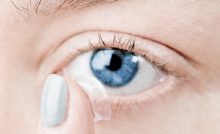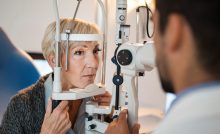What You Need to Know About Ocular Hypertension


Intraocular pressure pertains to the pressure in your eyes. A significant increase in this pressure can result in ocular hypertension. While not considered a disease, it could increase your risk of glaucoma. It is a common condition in older adults that harms the optic nerve and causes vision loss.


Learn more about ocular hypertension from a local optometrist.
Common Causes of Ocular Hypertension
Medication
Certain medications can increase your intraocular pressure, such as steroidal eye drops.
Existing Eye Conditions
Pseudoexfoliation syndrome, pigment dispersion syndrome and corneal arcus are some of the eye conditions linked to ocular hypertension.
Aqueous Overproduction
Aqueous humor is a transparent, watery substance found behind the iris. It cleanses and brings oxygen and nourishment to the lens. This fluid is essential for maintaining normal eye pressure. However, too much aqueous humor can cause ocular hypertension. The same problem can occur if the aqueous drains slowly or builds up.
Eye Trauma
If you experience discomfort, pain or injury in your eye, contact your eye doctor immediately. Injuries could disrupt aqueous production and drainage, resulting in increased eye pressure. If you’ve hurt your eyes in the past, do let your doctor know. Trauma can still affect your eyes months or years after the incident occurred.
Who Is At Risk?
Individuals aged 40 and older have an increased risk for ocular hypertension. In the U.S., around 10% of adults at least 40 years old have high intraocular pressure. If high eye pressure and glaucoma run in your family, you are more likely to have this problem. Elevated eye pressure is also common in nearsighted people.
How Can You Lower Your Intraocular Pressure?
If you have ocular hypertension, your eye care provider might prescribe eye drops formulated to lower eye pressure. Good lifestyle switches can also aid in regulating your intraocular pressure. Regular exercise, balanced meals with plenty of fruits and vegetables, and drinking enough water are also helpful for lowering your eye pressure.
Routine eye exams can help detect eye diseases associated with ocular hypertension, such as glaucoma. Let Vienna Eyecare handle your family’s eye care needs. We offer comprehensive eye exams, eyeglasses, contact lenses and more. Call us at (703) 938-7633, or fill out our contact form to schedule an appointment.
Recent Posts
Reasons Contact Lenses Might Not Be Right for You
Contact lenses offer a convenient and almost invisible way to correct vision problems for many…
How to Choose the Best Lenses for Your Vision and Lifestyle
Selecting the right lenses for your glasses is as important as choosing the right frames,…
Can Contacts Protect My Eyes Against UV?
With summer in full swing, many of us head outdoors to soak up the sun,…
Can Children and Young Adults Develop Cataracts?
It's a common misconception that cataracts only affect the elderly. When discussing eye health issues…
How Is Astigmatism Treated?
Astigmatism represents one of the most common vision issues encountered by individuals, marked by an…
Am I Too Old to Switch to Contact Lenses?
As we age, our vision inevitably changes, often leading to the need for corrective lenses.…







